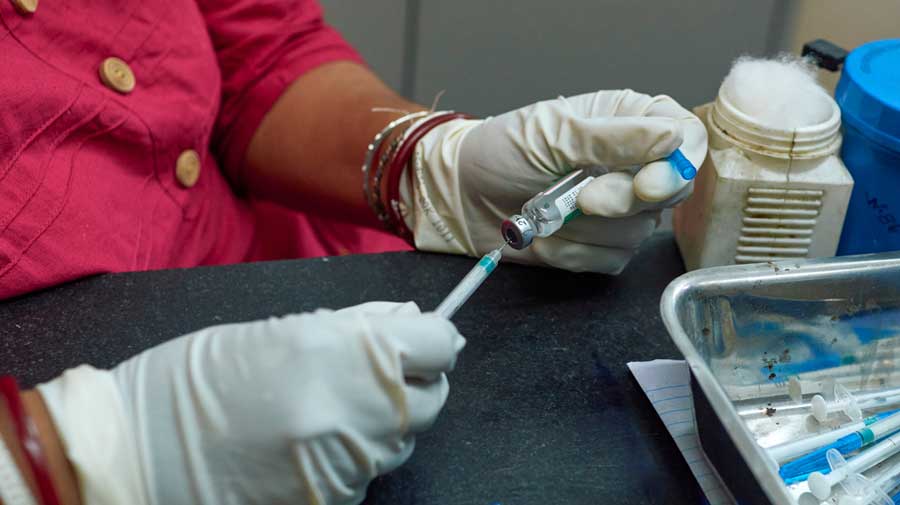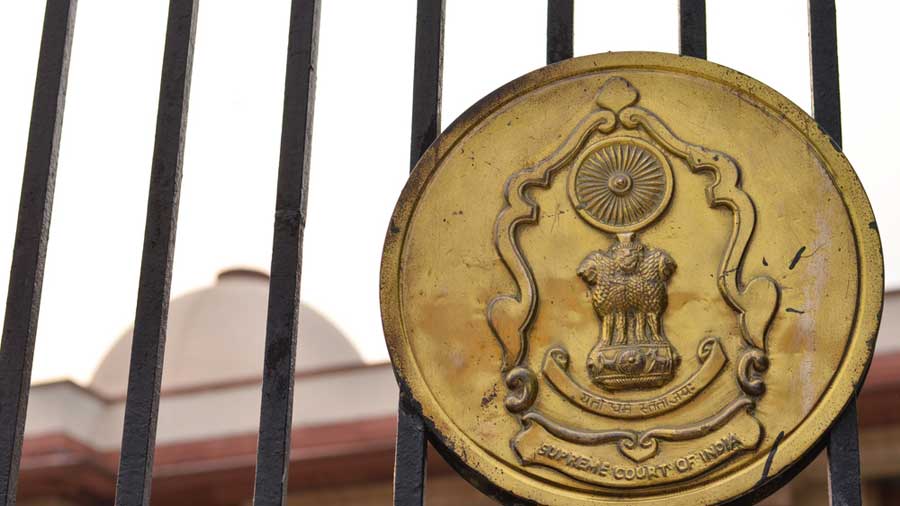A letter from a Covid-19 vaccine maker to the Delhi government and an affidavit by the Centre in the Supreme Court suggest the Centre will decide which states will get how many doses and no state can order extra.
The two documents, health experts have said, indicate that the Centre will continue to control vaccine supplies to the states even for beneficiaries aged between 18 and 45 years for whom the Centre had earlier said the states and private hospitals can procure vaccines on their own.
The experts said the May 11 letter from Covaxin maker Bharat Biotech to the Delhi government and the Centre’s May 9 affidavit together illustrate how India — the world’s largest vaccine producer — was now struggling to procure doses because of poor planning.
Bharat Biotech has told Delhi the company is dispatching vaccines under “directives of concerned government officials” and therefore “cannot make any additional supplies” as requested by Delhi.
The Delhi government said on Wednesday no vaccination centre in Delhi would from Thursday be able to administer Covaxin to people aged between 18 and 45 because of vaccine unavailability.
The Centre has in its affidavit said that vaccine distribution among the states would be based on “equitable and rational criteria” to eliminate the possibility of some states’ higher bargaining power hurting residents of other states.
Under the revised vaccination policy that came into force on May 1, the Centre will procure 50 per cent of the available doses that will be distributed among the states and will be used only in people 45 years or older. The states and private hospitals can use the other 50 per cent to vaccinate adults younger than 45.
While the states seek to procure vaccines from the companies, the Centre has “in consultation with vaccine manufacturers” determined how many doses each state can get depending on its population of adults younger than 45.
“This exercise is absolutely essential and this discipline is mandatory so as to have uniform vaccination throughout the country,” the Centre has said in its affidavit.
Health experts and others say the Centre’s first announcement on April 19 to allow vaccination for those aged between 18 and 45 suggested the states and private hospitals could procure vaccines on their own from the manufacturers.
“The affidavit contradicts the first announcement via press release that the manufacturers were free to supply to the states and private hospitals from the other than (central) government quota,” Jairam Ramesh, Congress leader and former Union minister, told The Telegraph.
“Now the affidavit says that the allocation to the states is based on population. We have now had three policies in three weeks.”
For the month of May, the Centre has said 20 million doses — 5 million doses of Covaxin and 15 million doses of Covishield, produced by the Serum Institute of India — would be available for procurement by the states for possible use in adults under 45.
The allocation for Bengal is 1,057,610 Covishield doses and 366,790 Covaxin doses. Uttar Pradesh, the most populated state, will receive 2,553,340 Covishield doses and 885,510 Covaxin doses. Delhi will receive 267,690 Covishield and 92,840 Covaxin doses.
The Delhi government has said it wants to inoculate about 300,000 people a day.
“It is embarrassing that India should struggle for vaccines,” said Oommen John, a physician and senior researcher at The George Institute for Global Health, New Delhi.
“We are the world’s leading producers of vaccines and have some of the best vaccine researchers in the country.”
John and others believe the vaccine shortage stems primarily from the failure of the vaccine policy makers to prepare for the number of doses India would need through advance investments or through purchase pacts with manufacturers the way other countries have done.
Neither the Centre nor the vaccine makers have said how many doses would be available for the private hospitals in each state this month. The affidavit has said the Centre is procuring 21,250,000 doses for the states during May for people 45 years or older and allocating 20 million doses for the younger adults.
Since the doses are distributed in a 50:50 ratio, 1,250,000 doses remain unaccounted for and, experts believe, could be intended for distribution among private hospitals.
But experts say the total allocation of 42.25 million doses for May is surprising because the production capacity was expected to be about 80 to 90 million doses per month.
“We need transparency on production,” Ramesh said. “Sadly this has not been forthcoming. Lack of this information makes it impossible for the states to plan and budget their payment to vaccine companies.”












